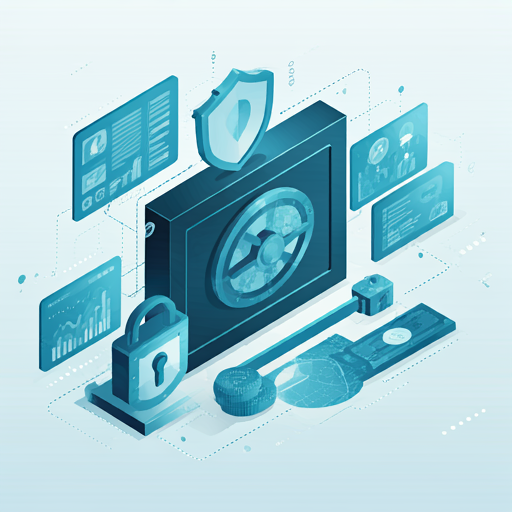Introduction to Cybersecurity in Finance
The Importance of Cybersecurity
Cybersecurity is crucial in finance due to the increasing sophistication of cyber threats. Financial institutions face risks that can compromise sensitive data and assets. Protecting this information is essential for maintaining trust and integrity in the financial system. Every transaction carries potential vulnerabilities. Security measures must be robust and proactive. It’s vital to stay informed about emerging threats. Knowledge is power in this domain.
Overview of Financial Threats
Financial threats encompass a range of risks, including fraud, data breaches, and cyberattacks. These threats can lead to significant financial losses and reputational damage. Moreover, the rise of digital transactions has expanded the attack surface for malicious actors. Awareness is key in this landscape. Understanding these threats is essential for effective risk management. Knowledge empowers better decision-making.
Understanding Cryptocurrency Security
How Cryptocurrencies Work
Cryptocurrencies operate on decentralized networks using blockchain technology. This structure ensures transparency and security through cryptographic techniques. Key components include:
Each transaction is verified by the network. This process enhances security. Understanding these elements is crucial for users. Knowledge is essential for safe transactions.
Common Vulnerabilities in Cryptocurrency
Common vulnerabilities in cryptocurrency include phishing attacks, smart contract flaws, and exchange hacks. These risks can lead to significant financial losses. For instance, phishing schemes often trick users into revealing private keys. This can result in unauthorized access to funds.
Additionally, poorly coded smart contracts may contain exploitable bugs. Such vulnerabilities can be manipulated by malicious actors. He must remain vigilant against these threats. Awareness is crucial for protection.
Types of Cyber Threats in Finance
Phishing Attacks
Phishing attacks are deceptive tactics used to obtain sensitive information. These attacks often involve fraudulent emails or websites that mimic legitimate entities. He may unknowingly provide personal data, leading to financial loss. Awareness of these tactics is essential. Prevention strategies can mitigate risks effectively. Knowledge is power in cybersecurity.
Ransomware and Malware
Ransomware and malware pose significant threats to financial systems. Ransomware encrypts data, demanding payment for access. This can disrupt operations and lead to financial losses. Malware, on the other hand, can steal sensitive information. He must implement robust security measures. Prevention is better than cure.
Best Practices for Protecting Your Assets
Using Strong Passwords and Two-Factor Authentication
Using strong passwords and two-factor authentication is essential for securing financial assets. Strong passwords should be complex and unique. This reduces the risk of unauthorized access. Two-factor authentication adds an extra layer of security. He should enable it wherever possible. It significantly enhances protection. Security is a priority.
Regular Software Updates and Security Patches
Regular software updates and security patches are critical for maintaining system integrity. These updates address vulnerabilities that could be exploited by cybercriminals. He must prioritize timely installations to safeguard his assets. Neglecting updates can lead to significant risks. Staying current is essential for effective protection. Security should never be overlooked.
Secure Storage Solutions for Cryptocurrencies
Hot Wallets vs. Cold Wallets
Hot wallets are connected to the internet, providing easy access for transactions. However, this connectivity increases vulnerability to cyber threats. Cold wallets, in contrast, are offline storage solutions. They offer enhanced security against hacking attempts. He should assess his needs carefully. Security is paramount in cryptocurrency storage.
Choosing the Right Wallet for Your Needs
Choosing the right wallet depends on individual needs and security preferences. He must consider factors such as accessibility and protection levels. Hot wallets offer convenience for frequent transactions. Cold wallets provide superior security for long-term storage. Each option has distinct advantages. He should evaluate his usage patterns carefully. Security is essential for peace of mind.
Regulatory Framework and Compliance
Understanding Financial Regulations
Understanding financial regulations is crucial for compliance and risk management. These regulations ensure market integrity and protect investors. He must stay informed about relevant laws. Non-compliance can lead to severe penalties. Awareness of regulatory changes is essential. Knowledge is key in finance.
Compliance Best Practices for Cryptocurrency Businesses
Compliance best practices for cryptocurrency businesses include implementing robust Know Your Customer (KYC) procedures. These measures help verify user identities and prevent fraud. Regular audits are essential to ensure adherence to regulations. He should maintain detailed records of transactions. Transparency fosters trust with regulators and customers. Compliance is a continuous process.
The Role of Blockchain in Enhancing Security
How Blockchain Technology Works
Blockchain technology operates as a decentralized ledger that records transactions across multiple computers. This structure enhances security by ensuring that no single entity controls the data. Each block contains a cryptographic hash of the previous city block, creating an immutable chain. He benefits from increased transparency and trust. Security is built into the system.
Benefits of Blockchain for Financial Security
Blockchain offers significant benefits for financial security through its decentralized nature. This reduces the risk of fraud and unauthorized access. Each transaction is recorded transparently, enhancing accountability. He can trust the integrity of the data. Security is paramount in finance.
Future Trends in Cybersecurity for Finance
Emerging Technologies and Their Impact
Emerging technologies significantly impact cybersecurity in finance. Innovations like artificial intelligence enhance threat detection capabilities. He must adapt to these changes. Automation improves response times to incidents. Staying informed is crucial for security. Knowledge is essential in this field.
Preparing for Future Threats
Preparing for future threats requires proactive strategies and continuous education. Organizations must invest in advanced security technologies. He should conduct regular risk assessments. Staying ahead of potential vulnerabilities is essential. Awareness is key in cybersecurity. Knowledge protects valuable assets.

Leave a Reply